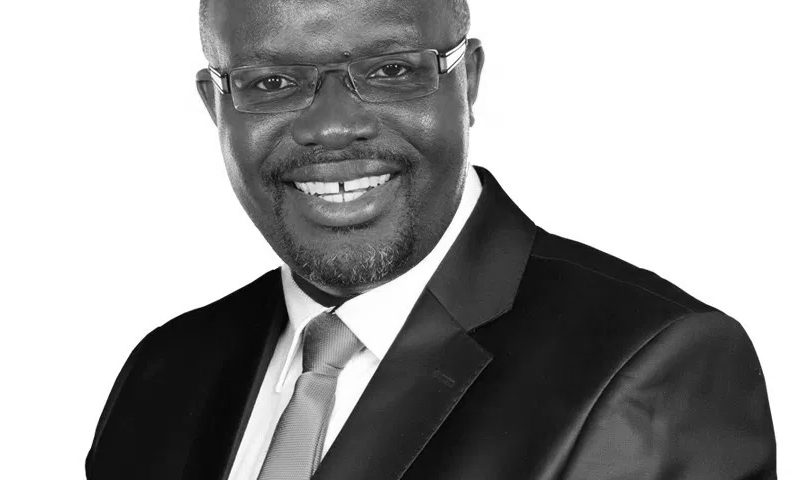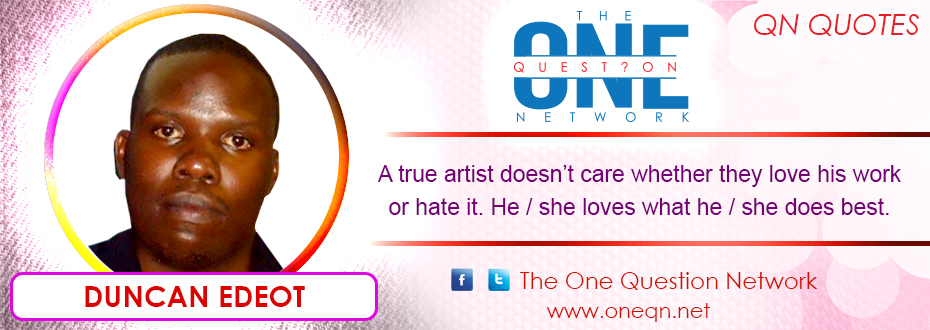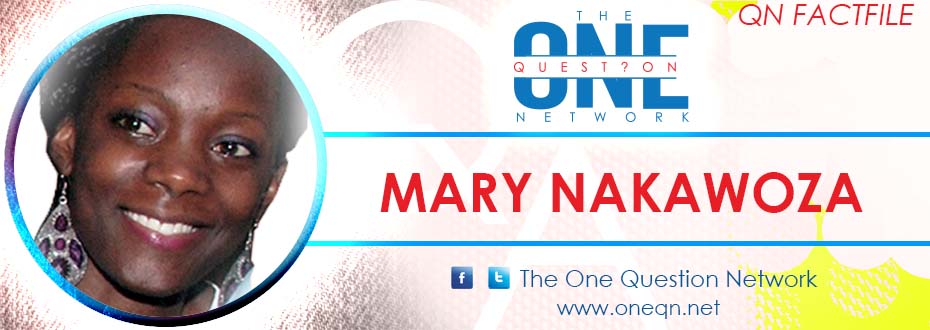Shiraz-murray-five plus interview
Aug 21, 2013Maluda-Five plus interview
Aug 26, 2013Professor Venansius Baryamureeba is a Professor of Computer Science and holds a Ph.D. in Computer Science, M.Sc. in Computer Science, Post Graduate Diploma in Economic Modelling, Post Graduate Diploma in Mathematical Modelling, Post Graduate Certificate in Public Relations, Post Graduate Certificate in Administration, Post Graduate Certificate in Business Management, and B.Sc. (Hons) among other qualifications. In 2007 Prof. Baryamureeba received the ‘Top ICT Educator / Academic’ Award in Africa for 2007 and in 2008 he was appointed Judge for the African ICT Achievers Awards 2008. In April 2008 Professor Baryamureeba was considered for inclusion in the upcoming 2009 Edition of Who’s Who in the World, which was published in November 2008. He is currently the Vice Chancellor at Uganda Technology and Management University. Read on to find out more about this incredible individual, only on The One Question Network.
Who is Professor Venansius Baryamureeba?
What you mean is that you don’t know? I will tell you! I was born 44 years ago, on May 18 1969 in Ibanda. I went to school in Kabarole, after which I came to Makerere University and did my Bachelor’s Degree. I then went to Norway to do my Master’s Degree and Ph.D. That’s about my education. As an individual, I’ve served at Makerere University as the Director of the Institute of Computer Science, as the Dean of the Faculty of Computing and IT and as Vice Chancellor of Makerere University from 2009 to 2012. I’m currently the Vice Chancellor of Uganda Technology and Management University, the only university that is going to focus on technology and management in the region. Expect us to be among the two top universities in the next one year.
What made you choose the path in IT?
Right from primary school, I loved Mathematics because I used to do business with my father. I was impressed with how he would count. He would a lot of factorization in his head and this intrigued me since he had not gone to primary school and he was very accurate, so I picked an interest in Mathematics. As I was going through primary and secondary education, I wanted to do something that involved Mathematics. I had a cousin that was very rich and had done BCOM and he had told me that for one to do BCOM, one must have done Mathematics, Economics and Geography. I’d also wanted to do Physics, but I now ha to branch into those three subjects. But as I was finishing Senior Four, I then met a Dr. Rutaro who had done Computer Science and was very rich. Hey, I wanted to get rich also, so I thought of doing PCM where I could do Electrical Engineering… something close to Mathematics. That’s how I ended up doing Mathematics at University. When I finished, I went abroad and did Computer Science because Mathematics is the core of Computer Science. That’s how I ended up in this career. First of all it was like a lucrative career, and even at the time when I was pursuing my Master’s Degree, everybody here in Uganda, including Uganda Revenue Authority and MTN, was looking out for anybody who had done a Master’s Degree in Computer Science. So I went in basically for that. But after I’d finished I realized there was more to it than just money. I asked myself how we could build capacity in the country in the area of ICT, including Computer Science. That’s how I ended up in the education sector, working at the Institute of Computer Science, the Faculty of Computing and IT at Makerere, and so on.
At Uganda’s current level, do you think we are able to compete on the international IT scene?
You see, if you are to compete on the international market, the first thing you have to look at is the quality of your graduates. Many institutions have tried to improve on that quality, but not all institutions are there yet. The quality has been improving, but we need to take it to another level. One of the reasons, I’ve realized, why we fail to meet the standards is because we focus on so much. You find an institution focusing on fifty disciplines! You can’t do well in all. We need specialization. That is why we are focusing on technology and management. We are not even going to initially focus on Science, because technology is the application of Science. People do a lot of research and come up with scientific discoveries but they never take them to the next level of solving a problem. That’s why we want to focus on the component of applying Science, which is basically technology. We also want to focus on applied sciences like IT and Business, and we hope that within the next two years, we might have only one university to compete with in the region, the region being East Africa! We are not going to teach religious studies and History.
Uganda has a host of entrepreneurs with little or no education. Is education necessary in making money?
Yes. Look at some of the role model entrepreneurs we have been looking at, like the late Professor Mulwana and Professor Wavamuno. They didn’t go much into education to get degrees and so-on. But they have been some of the best entrepreneurs we have had in this country, reason being that they had very good primary education, which is the foundation of all education. Once you do primary education very well, then you can pursue the rest on your own, because you have that foundation. That’s why most people doing well in business didn’t bother with university education. Bill Gates didn’t complete his education at Havard University because he had gotten the information he needed to build other things. I mean, he has a Ph.D in software engineering but he didn’t go to a classroom for that. He did it on his own. And that’s we need. If we are going to create entrepreneurs, then we are going to need to focus on primary education and give people a good foundation. If you look at developed countries like South Korea, their government invested a lot of money in primary education, an about 99% of the students who finish primary are in government schools. But when it came to secondary education, the private sector came in and played the bigger role and the government contributes about 47% to secondary education and about 10% to university level, which is what we need in this country.
Do you think Vision 2040 is achievable, or is it another campaign to excite the locals?
It is not merely literature. I am very sure that the government is very serious with Vision 2040. We have had other visions before that were never implemented. The whole issue is that if you believe in something, then you should give it your best. Vision 2040 clearly outlines where our country should go, and that’s a good thing. And it’s not only government to implement Vision 2040, but the private sector as well, by looking at where the government is headed so that you can also make your contribution. BUT the government MUST do its part. For example, what we expect is that when the budget has been read we expect the government prioritize the content in Vision 2040. Because if the plan and the budget don’t tally, then the vision can’t be implemented. People are saying that it is an ambitious vision, but it’s better to be ambitious than to have no ambition at all. South Korea came up with an ambitious plan in the 1960’s and 1970s and they achieved a lot in a period of about 15 years. The per capita income grew from $100 to $1500. We can achieve the same. Uganda is fortunate because of its tourism, natural resources, good climate… we could even be the food basket for East Africa. Take a look at the oil and gas sector, which has presented us with another opportunity, where jobs will be created. But again, we don’t want people to sleep. That’s the problem we are having in this country. As compared to Kenyans, most Ugandans are very lazy. The Kenyans are very aggressive. If you went to the villages, people start drinking at 7:00 am because they no longer pay taxes and school fees. In the past, you’d find people working hard to pay graduated tax at the end of the year lest they be arrested. We need to ensure that Ugandans are economically active instead of dishing out money to them. If it means reintroducing certain taxes, then let it be done, so that ours is not the idle population that only focuses on drinking.




